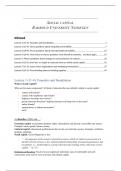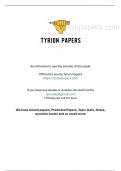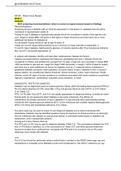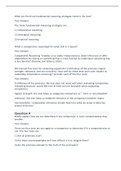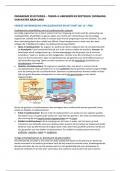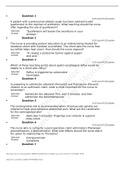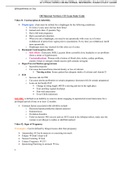College aantekeningen
Colleges Social capital (SOW-SOB2031) sociologie keuze vak
- Instelling
- Radboud Universiteit Nijmegen (RU)
Het document bestaat uit een samenvatting van de colleges van het keuze vak social capital in het tweedejaar van sociologie aan de radboud universiteit, maar andere studies mogen deze vakken ook kiezen. De samenvatting bevat alle 8 de colleges en is in het Engels geschreven, aangezien het tentamen ...
[Meer zien]
